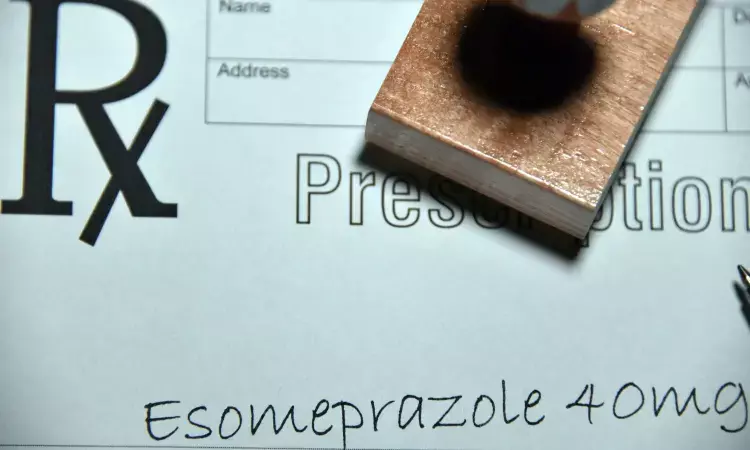- Home
- Medical news & Guidelines
- Anesthesiology
- Cardiology and CTVS
- Critical Care
- Dentistry
- Dermatology
- Diabetes and Endocrinology
- ENT
- Gastroenterology
- Medicine
- Nephrology
- Neurology
- Obstretics-Gynaecology
- Oncology
- Ophthalmology
- Orthopaedics
- Pediatrics-Neonatology
- Psychiatry
- Pulmonology
- Radiology
- Surgery
- Urology
- Laboratory Medicine
- Diet
- Nursing
- Paramedical
- Physiotherapy
- Health news
- Fact Check
- Bone Health Fact Check
- Brain Health Fact Check
- Cancer Related Fact Check
- Child Care Fact Check
- Dental and oral health fact check
- Diabetes and metabolic health fact check
- Diet and Nutrition Fact Check
- Eye and ENT Care Fact Check
- Fitness fact check
- Gut health fact check
- Heart health fact check
- Kidney health fact check
- Medical education fact check
- Men's health fact check
- Respiratory fact check
- Skin and hair care fact check
- Vaccine and Immunization fact check
- Women's health fact check
- AYUSH
- State News
- Andaman and Nicobar Islands
- Andhra Pradesh
- Arunachal Pradesh
- Assam
- Bihar
- Chandigarh
- Chattisgarh
- Dadra and Nagar Haveli
- Daman and Diu
- Delhi
- Goa
- Gujarat
- Haryana
- Himachal Pradesh
- Jammu & Kashmir
- Jharkhand
- Karnataka
- Kerala
- Ladakh
- Lakshadweep
- Madhya Pradesh
- Maharashtra
- Manipur
- Meghalaya
- Mizoram
- Nagaland
- Odisha
- Puducherry
- Punjab
- Rajasthan
- Sikkim
- Tamil Nadu
- Telangana
- Tripura
- Uttar Pradesh
- Uttrakhand
- West Bengal
- Medical Education
- Industry
Long-term PPI Use Increases the risk and recurrence of Kidney Stones

Previous studies have mentioned an association between Exposure to PPIs and an increased risk of kidney stones among GERD patients. Hypomagnesemia and hypocitraturia associated with PPI exposure may lead to the risk of kidney stones.
Original research published in BMJ Open has concluded that the prolonged use of proton pump inhibitors (PPIs) increases the likelihood of developing and experiencing the recurrence of kidney stones.
The present cross-sectional study investigated the relationship between PPI use and the risk of kidney stones in US adults, which had been suggested by previous research to be connected to changes in urine mineral levels.
The study included 27075 individuals. After adjusting for potential confounding factors, non-linear analysis, logistic regression analysis and subgroup analysis estimated the relationship.
Key findings of the study are:
- There was a significant association between PPI use and kidney stones with OR 1.31.
- There was a 4% increase in the kidney stones prevalence for each additional year of PPI use.
- There was an association between PPI use and recurrent kidney stones with OR 1.49.
- There was a 7% increase in the recurrence of kidney stones for each additional year of PPI use.
- The associations remained significant even after conducting propensity score matching analysis on a subset of PPI users and non-users.
- Based on the analysis of subgroup analyses, the effects of PPI use on kidney stones differed by age, sex, race and BMI.
The study highlights the relationship between PPI and kidney stones. Based on the findings from this study, long-term use of PPI is tied to a higher risk of both the presence and recurrence of kidney stones.
It is important for healthcare providers to counsel patients who have a history of or are at risk for developing kidney stones about this potential link.
Reference:
Liu W, Wang J, Wang M, et al. Association of proton pump inhibitor use with risk of kidney stones: an analysis of cross-sectional data from the US National Health and Nutrition Examination Survey (2007–2018). BMJ Open 2023;13:e075136. doi: 10.1136/bmjopen-2023-075136
BDS, MDS in Periodontics and Implantology
Dr. Aditi Yadav is a BDS, MDS in Periodontics and Implantology. She has a clinical experience of 5 years as a laser dental surgeon. She also has a Diploma in clinical research and pharmacovigilance and is a Certified data scientist. She is currently working as a content developer in e-health services. Dr. Yadav has a keen interest in Medical Journalism and is actively involved in Medical Research writing.
Dr Kamal Kant Kohli-MBBS, DTCD- a chest specialist with more than 30 years of practice and a flair for writing clinical articles, Dr Kamal Kant Kohli joined Medical Dialogues as a Chief Editor of Medical News. Besides writing articles, as an editor, he proofreads and verifies all the medical content published on Medical Dialogues including those coming from journals, studies,medical conferences,guidelines etc. Email: drkohli@medicaldialogues.in. Contact no. 011-43720751


